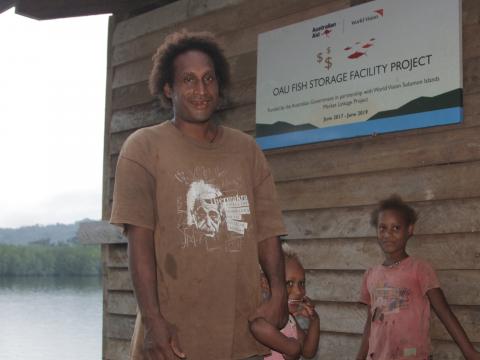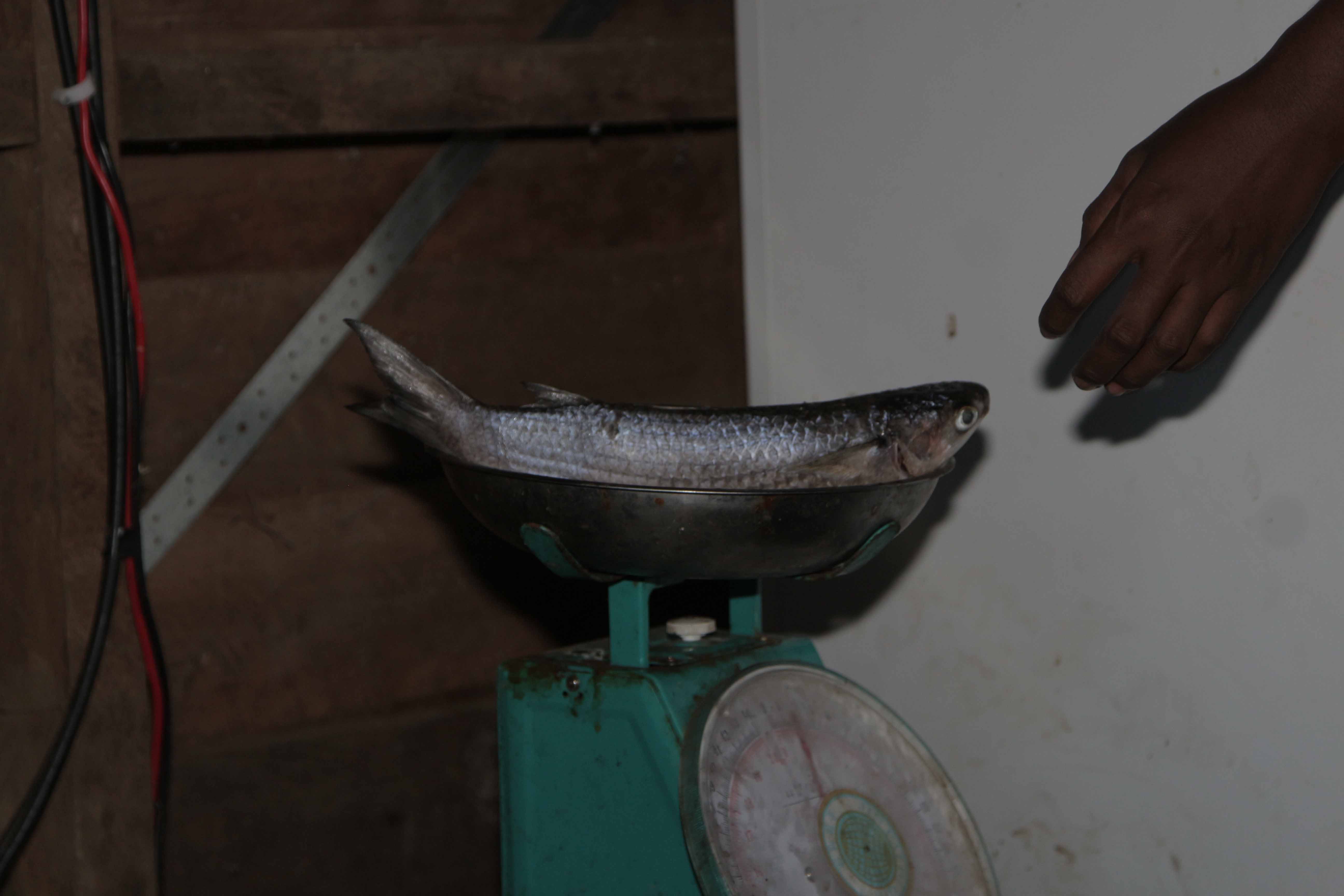Fishing for the future

On a clear, fine day, O’au, a tiny mangrove-fringed island in South Malaita, Solomon Islands, attracts fishermen with their bountiful daily catch. In the past, the challenge for the community was storing the fish. In 2017, World Vision provided two solar-powered freezing facilities that serve most of the communities along the water channel, as well as Afio town. Since the facility opened, the community has been able to store fish for future consumption and sell fish to earn an income. Ben is one of the producer group members who has benefited from the facility and helps to run it by purchasing fish from fishermen and selling to the local community.
“We buy fish for SBD$15 per kilogram from fishermen, store it in the freezer and resell it for SBD$20 per kilogram. Sometimes members of our producer group go out fishing as well. There’s always fish available in our freezer and everyone is happy because they can get fish whenever they like,” said Ben, who manages the facility every Thursday.
The solar-powered fish storage facilities were provided through World Vision’s Market Linkage Project. A savings group established in a previous World Vision project continues to operate in the area. Community members who earn an income from selling fish deposit some of the income into the savings group.
“Before World Vision brought the fish storage facility to our shores, it was a bit difficult to find a source of income to participate in our savings group system,” said Ben. “Fish is one of the abundant resources in our area and the demand for it is high. In the past we struggled to sell our produce at the Afio market, which is both expensive and tiring to reach from where we live,” he added.

With the fish storage facility installed in Ben’s community, people find it easier to buy fish whenever they like, and Ben is starting to experience the financial benefits from this activity.
“I have two daughters, Agnes 6 and Jemery 3. Agnes is currently in grade 2 and Jemery is attending a local kindergarten. With my participation in the community project, I can keep my kids in school and meet other needs such as hiring an outboard motor boat to transport my family to the nearest health centre rather than using a dug-out canoe like in the past,” shared Ben.
“As people are driven to fish, we sometimes end up having more fish than we can store,” said Ben. “We then try to visit other communities and sell the fish before it goes off,” he added. Ben’s producer group is currently aiming to save and buy a new solar-powered freezing facility to cater for the high supply and demand of frozen fish. They are expecting to see a continued increase in demand.
The World Vision Market Linkage Project is supported by the Australian Government through the Australian NGO Corporation Program (ANCP) in partnership with both the national and provincial offices in the Ministries of Agriculture, Fisheries and Commerce and several civil organisation groups. The goal of the Market Linkage Project is to sustainably improve the livelihoods and resilience of 7,552 people from 29 vulnerable communities in Makira, South Malaita and Temotu by supporting them to consistently produce high quality products and strengthen their access to profitable markets.